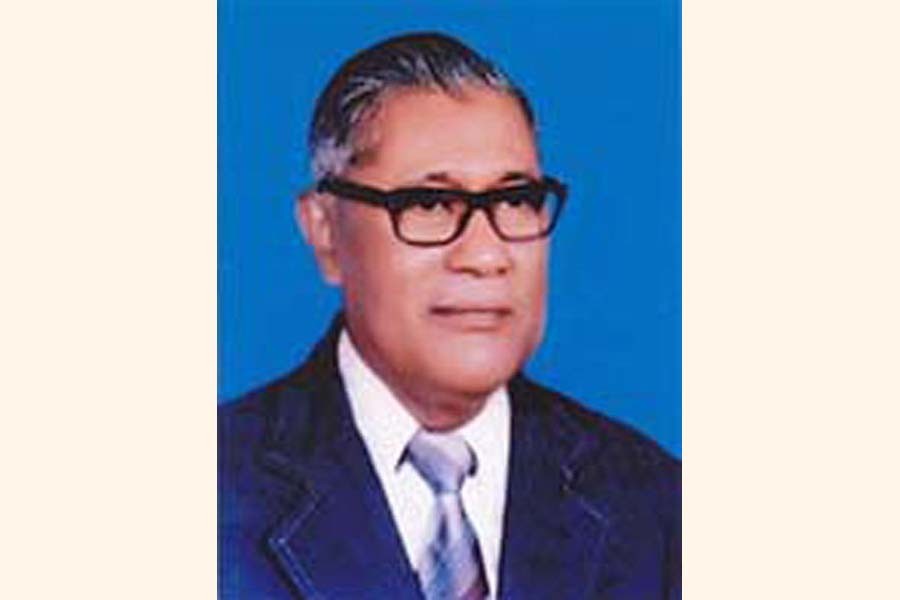National Professor Mohammad Ibrahim (1911-1989) was a celebrated physician, a gifted teacher, a talented organiser and a great reformer. His contributions in the field of medicine in general and diabetes in particular was phenomenal. He spent the major part of his life in government health services in key positions.
Dr. Ibrahim was the founder of Diabetic Association in Dhaka (1956) and in Karachi and Lahore, West Pakistan (1964). He realised that diabetes is a disease where not only doctors but also patients should be involved in the treatment. He termed it socio-medical care. Although the real extent of the problem of diabetes was not evident in our part of the world, he could foresee the future picture at that time and organised a group of social workers, philanthropists and professionals. With their help he established the Diabetic Association of Pakistan on February 28, 1956.
Diabetic care was started in a tin-shed building at Segunbagicha with only 23 patients. Dr. Ibrahim's motto was "No diabetic patient should die untreated, unfed or unemployed even if she/he is poor." So, he gave primary care to the diabetic patients free of cost. Even rich patients were not allowed to pay for primary diabetic care, but they could donate money to the Association. The funds were raised through motivation programmes.
He established the Bangladesh Institute of Research and Rehabilitation in Diabetes, Endocrine and Metabolic Disorders (Birdem) at Dhaka in 1980, where the out-patients centre of the Bangladesh Diabetic Association was shifted to. The institute is housed in two large buildings, named the Ibrahim Memorial Diabetes Centre after his death in 1989. To develop trained and specialised manpower, he also established an Academy in Birdem for postgraduate education in diabetes, endocrine and metabolism.
Birdem has been acclaimed as a model for South East Asia. In recognition of its innovative, extensive and high quality service it was designated in 1982 as a "WHO-Collaborating Centre for Developing Community-oriented Programmes for Prevention and Control of Diabetes." It is the first such centre in Asia.
For over three decades, Dr. Ibrahim raised awareness about diabetes through free-of-cost quality services, health education, and motivation. He also established the Bangladesh Institute of Research and Training for Applied Nutrition (BIRTAN) and Rehabilitation and Vocational Training Centre (RVTC) in Dhaka to develop low-cost nutrition, and to give vocational training to the poor and unemployed diabetics. He also set up a family planning section at Birdem for motivational work.
Following the guidance and philosophy of its founder, the Diabetic Association of Bangladesh has upheld its motto that in Bangladesh no diabetic should die untreated or unfed, even if he/she is poor, and that all patients shall be provided with affordable healthcare service.
The Association has set some targets and objectives as its mission. These include, inter alia, providing total healthcare including prevention, control and rehabilitation for all diabetics through different institutions of the Association; expanding these services to provide affordable BADAS healthcare through self-sustaining centres of excellence; developing human resources; creating specialised, quality manpower (physicians, technicians, nurses, etc) of high ethical standards for manning these institutions; developing leadership in healthcare through dedicated and transparent management system; developing industries for diabetic and health foods; and manufacturing medicines. Diabetes care centres have been established in and around Dhaka and also all over the country with local entrepreneurs. Now there are 63 branches in district headquarters and 14 sub-affiliated centres at the upazilla level.
Dr. Mohammad Ibrahim died on September 6, 1989. His death anniversary is observed as (Diabetic) Service Day (Sheba Divash) to endorse and honour his great contribution to socio-medicare services.
Dr Muhammad Abdul Mazid, Former Secretary, and Chairman NBR


